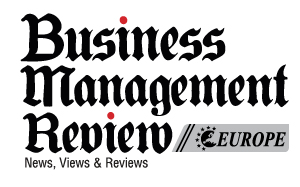Thank you for Subscribing to Business Management Review Weekly Brief
I agree We use cookies on this website to enhance your user experience. By clicking any link on this page you are giving your consent for us to set cookies. More info
Outsourced Procurement Services for Enhanced Business Management
Globalization has extended supply chains and made vendor management complex, while rising market volatility has increased the urgency for agile and resilient procurement functions.
By
Business Management Review | Thursday, November 20, 2025
In the evolving landscape of business management, outsourced procurement services have emerged as a strategic lever that organizations increasingly rely on to enhance efficiency, reduce costs, and maintain competitive advantage. Several critical factors influence the shift toward outsourcing procurement. Many businesses, especially small and mid-sized enterprises, lack the in-house expertise to navigate these challenges, making outsourcing a practical and scalable solution. Procurement is recognized as a non-core but essential function that can be streamlined through external expertise.
Technology firms use outsourced procurement services to manage the acquisition of software licenses, cloud services, hardware, and technical consulting. Providers negotiate with vendors, manage subscriptions, and ensure IT system compatibility, freeing internal teams to focus on innovation and service delivery. Companies benefit from access to global supplier networks, negotiated volume discounts, and benchmarking capabilities.
Stay ahead of the industry with exclusive feature stories on the top companies, expert insights and the latest news delivered straight to your inbox. Subscribe today.
Driving Forces and Technological Integration
Technology implementation is a cornerstone of modern outsourced procurement. Service providers are leveraging digital procurement platforms to automate and optimize the procurement lifecycle, from requisitioning and supplier onboarding to payment and performance evaluation. AI-driven algorithms can automate supplier selection by analyzing historical performance, pricing patterns, and delivery timelines, while RPA can streamline repetitive tasks like invoice processing and order tracking.
Procurement service providers are integrating blockchain to improve transparency and traceability across supply chains. By recording each transaction on an immutable ledger, blockchain technology ensures accountability and mitigates the risk of fraud or non-compliance. Cloud-based procurement platforms have become standard, enabling real-time collaboration, global accessibility, and secure data sharing between clients and suppliers. The technologies collectively enhance procurement operations' accuracy, speed, and strategic value.
Procurement partners now offer tools to vet suppliers on sustainability credentials and track carbon footprints across supply chains. The growing use of data analytics for spend management and demand forecasting enables companies to gain deeper visibility into their procurement operations. Providers focus on category management, tailoring sourcing strategies to specific categories such as IT, logistics, raw materials, or marketing services to drive targeted cost savings and performance improvements.
Enhancing Supply Chain Efficiency
Outsourced procurement services are widely applied across various industries, including manufacturing, retail, healthcare, technology, and construction. Retail businesses benefit from outsourced procurement through centralized purchasing, real-time inventory visibility, and cost control. Service providers help retailers forecast seasonal demand, negotiate favorable terms with suppliers, and manage return logistics. By integrating procurement platforms into enterprise resource planning (ERP) systems, retailers can synchronize procurement with sales and marketing efforts, ensuring optimal stock levels and responsive supply chains.
In the healthcare industry, outsourcing procurement is essential to managing the sourcing of medical equipment, pharmaceuticals, and consumables. Providers ensure suppliers meet quality standards, comply with local and international regulations, and deliver critical supplies on time. The high-stakes nature of healthcare makes procurement excellence a matter of efficiency and patient safety. Outsourcing partners bring in-depth industry knowledge, advanced analytics, and regulatory compliance support that internal teams may lack.
Beyond sector-specific use cases, outsourced procurement creates strategic value by driving operational efficiency, scalability, and risk mitigation. Procurement partners continuously analyze market trends and supplier performance, providing insights that inform budgeting, supplier selection, and long-term sourcing strategies. Businesses can scale procurement operations up or down depending on market conditions or expansion plans without the burden of maintaining large in-house teams.
Best Practices for Outsourcing Procurement Functions
Companies may be concerned about data security, alignment with internal goals, or reduced responsiveness due to external handling of strategic functions. Many service providers now offer customized dashboards and reporting tools that allow clients to monitor procurement activities and key metrics in real-time. Migrating procurement processes to an external provider requires change management, training, and system integration. Internal teams may resist the shift or struggle to adapt to new workflows. Organizations must engage stakeholders early, set clear expectations, and ensure smooth data migration and process alignment.
Providers with strong consulting and implementation teams can be crucial in managing this transition. Supplier relationship management presents a hurdle when outsourced procurement partners are unfamiliar with the client’s business or local market nuances. It may lead to miscommunication, supply chain delays, or underperformance. Leading service providers address this by maintaining regional sourcing offices, employing category-specific experts, and conducting regular supplier audits to ensure alignment with client needs and standards.
A clear pricing model, transparency in cost structures, and defined ROI targets are essential to ensuring the financial viability of outsourcing engagements. Digital transformation, rising operational complexity, and the need for supply chain resilience are driving this momentum. The emphasis on ESG compliance, diversity sourcing, and sustainable procurement will shape future service offerings. Providers that combine digital capabilities with domain expertise will lead the way, offering not just procurement execution but also strategic advisory and transformation support. In the era of digital business management, procurement has evolved from a transactional back-office function into a strategic growth enabler.
More in News






